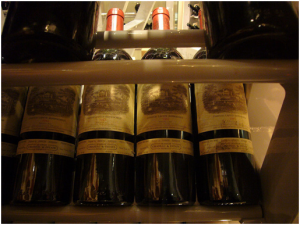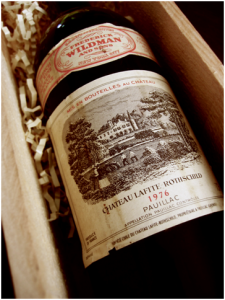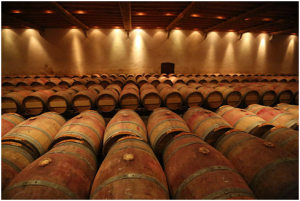Wine investment is a rapidly growing sector of the alternative investment market. The underlying principles are the same as for any other part of the economy – supply and demand. There are a limited number of investment quality wines available so supply is limited. On the demand side there are more wealthy people every year who are looking to purchase top quality wine. These consumers will either drink the wine or hold it to sell on at a profit in the future. As long as there are more buyers than sellers the price of wine will rise. If the situation is reversed then prices will fall.
Records over the last twenty years show that the price of wine has been steadily upwards. There have been dips, such as in 2008 when the global economic troubles started. Wine has still continued to outperform many other stocks and equities over this period.
Costs of wine investment
After the initial purchase of investment wine, there will be a need for space to store the wine and time to monitor the storage conditions. This will eat into any potential profits. Wine can also be re-valued once they have been bottled and this can destroy any profit margin. It is possible to store your wine with a merchant for a reasonable cost but this will leave it at risk if the merchant has financial difficulties. There have been many mis-selling scandals in recent years and there are always fake wines on the market. It is advisable to use the services of a merchant to ensure you are receiving the wine you think you are buying. Of course a merchant will charge for their service – approximately 10% of the cost.
Wines worth investing in
France is still the country of choice for the majority of investment wines. Bordeaux’s with its Chateau Lafite and others represent approximately 90% of the market; Burgundy’s, Rhone Valley wines and champagnes make up the majority of the rest and are usually safe investments. Wines from other countries can be more susceptible to changes in the market. Italy, Spain, California and Australia have had some decent wines but do not appear to be in favor at the moment.
The best Bordeaux’s are the ones from 1959, 1961, 1982, 1986, 1989, 1990, 2000 and 2005 and these are excellent investments; if you can purchase them. There are many others which can perform well and any vineyard with a quality reputation from the Bordeaux region could do well.
Large format wines
Purchasing wines which have not yet been bottled in the large bottles can be a very worthwhile investment. The price will be lower than normal as the wine has not been officially released and there can be a decent profit to be made when the standard size bottles are released. This is because the large format bottles are rarer and usually kept by collectors as opposed to being drunk. To make the most from this tactic it is essential to purchase top quality investment wine.
The more you read and research about wines the more you will learn and the better you will be at making decisions on which wines to invest in. There are many decent books available which will assist in learning the basics and the more detailed analysis of market movements.
Parker
Parker is responsible for rating all the wines produced and there remains a strong connection between a high Parker rating and a good return on investment. Any serious investor needs to be vigilant of the Parker guide and purchase wines according to their rating. Wins with points rating of 94 or more usually do very well.
It is a far better investment to buy a few top quality bottles rather than many medium quality bottles. Not only will the top quality wines be more likely to increase in price and be easier to sell, they will also be cheaper to store.
Essential checks when purchasing a wine
- Compare prices; different merchants will charge different prices.
- If you are looking to deal with trade buyers then between three and five cases of a wine will be necessary. Private buyers will purchase much smaller quantities.
- Consider keeping the wine in bond at a reputable professional storage company with the wine clearly being marked as yours.
- Make sure your entire collection is insured properly.
- Regularly check and ensure your wine is being stored in the right environment.
Tags: alternative investments, Bordeaux wine, Burgundy wine, buy fine wines with Parker ratings above 94, fine wine investing tips, fine wine investments, fine wine tips, investment, keeping the wine in bond at a reputable professional storage company, Make sure your entire wine collection is insured, Parker is responsible for rating all the wines produced Parker is responsible for rating all the wines produced, Parker rating, Rhone Valley wines and champagnes, storing wines, strong connection between a high Parker rating and a good return on investment, the best Bordeaux wine years, wine investing, wine investment, wine rating system
 Oxstones Investment Club™
Oxstones Investment Club™

